
Nivea B. Hamilton, known mononymously as Nivea, is an American R&B singer. She has released three studio albums: her self-titled debut (2001), followed up by Complicated (2005), Animalistic (2006), and an independently released extended play Nivea: Undercover (2011). In 2019, she released her album Mirrors.

The Andantes were an American female session group for the Motown record label during the 1960s. Composed of Jackie Hicks, Marlene Barrow, and Louvain Demps, the group sang background vocals on numerous Motown recordings, including songs by Martha Reeves & the Vandellas, the Temptations, Stevie Wonder, the Four Tops, Jimmy Ruffin, Edwin Starr, the Supremes, the Marvelettes, Marvin Gaye and the Isley Brothers, among others. It is estimated they appeared on 20,000 recordings.
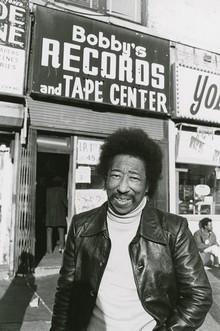
Morgan Clyde "Bobby" Robinson was an American independent record producer and songwriter in New York City, most active from the 1950s through the mid-1980s.

Diana & Marvin is a duets album by American soul musicians Diana Ross and Marvin Gaye, released October 26, 1973 on Motown. Recording sessions for the album took place between 1971 and 1973 at Motown Recording Studios in Hollywood, California. Gaye and Ross were widely recognized at the time as two of the top pop music performers.
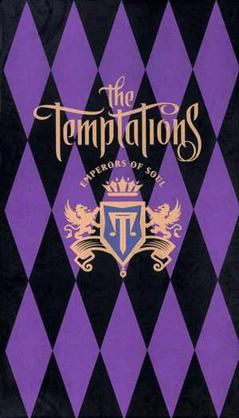
Emperors of Soul is a 1994 box set compilation for The Temptations, released by Motown Records. The five-disc collection covers the Temptations' entire four-decade history, from the first recording of The Distants in 1959 to four new recordings by the then-current Temptations lineup of Ali-Ollie Woodson, Theo Peoples, Ron Tyson, and stalwart members Otis Williams and Melvin Franklin.
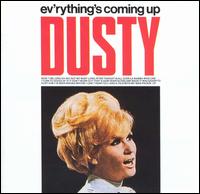
Ev'rything's Coming Up Dusty is the second studio album by singer Dusty Springfield, released on Philips Records in the UK in 1965. Springfield's 1964 debut album, A Girl Called Dusty, sold well enough to make her Philips Records' top-selling female artist. For this, her second album, Philips presented it in a gatefold sleeve and included extensive liner notes. While including a number of fairly standard "pop" songs, Ev'rything's Coming Up Dusty also saw Springfield venturing more into show tunes like "Who Can I Turn To ?" as well as the soul music for which Springfield became so well known for singing. "Doodlin'" and "That's How Heartaches Are Made" were minor hits for Baby Washington, one of Springfield's personal favourite singers. Springfield also included the song "La Bamba", which was a popular concert number for her, though not in step with the general style of the album. The album gave Dusty another chart success peaking at No.6 on the UK Charts and No.4 on the NME charts that following month.

The Best of UB40 – Volume One is a compilation album by the British reggae band UB40. It was released in 1987 and includes a selection of the band's hits from 1980 to 1986.
This is a comprehensive listing of official post-Idol releases by various contestants of the television show American Idol.
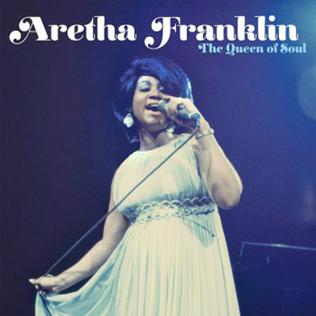
Queen of Soul: The Atlantic Recordings is an 86-track, four-disc box set detailing Aretha Franklin's Atlantic career, starting in 1967 with the landmark single "I Never Loved a Man " and ending with 1976's "Something He Can Feel".

Love Songs is a compilation album by British reggae band UB40. It was released in 2009 and includes all the love songs from by the band. The album includes 17 solo tracks as well as the 2 tracks that the band performed with Chrissie Hynde from The Pretenders and the Robert Palmer track "I'll Be Your Baby Tonight."
Winston Tucker, better known as Winston Groovy, is a Jamaican reggae singer best known for his recordings between the late 1960s and 1980s.

The Epic Masters is a box set compilation comprising ten remastered albums by Shakin' Stevens. Released on 16 November 2009, the set contains nine albums originally released by Epic Records between 1980 and 1990, plus an exclusive CD of 12" extended mixes. The set was also made available as a download through iTunes.

...But the Little Girls Understand is the second studio album by power pop/new wave group the Knack, released by Capitol Records in February 1980. The album reached the number 15 spot on the Billboard 200 album chart in 1980. The singles "Baby Talks Dirty" and "Can't Put a Price on Love" charted on the Billboard Hot 100 at No. 38 and No. 62, respectively. The song "Mr. Handleman" was released as a single in some countries, such as New Zealand. Guitarist Berton Averre has stated that "Mr. Handleman" was the first song he and lead singer Doug Fieger wrote together. The RIAA certified the album as Gold on April 14, 1980.
We've Come Too Far to End It Now was a 1972 single by Motown Records R&B group The Miracles on its Tamla Label subsidiary (T54220F) and taken from their 1972 album, Flying High Together, the group's final studio album with original lead singer Smokey Robinson. This song charted at #46 on the Billboard Pop Chart, and reached the Top 10 of its R&B chart, peaking at #9.

Ain't No Big Thing, But It's Growing is the second album by American funk and R&B collective New Birth, released on July 17, 1971, in North America by RCA.

Birth Day is the fourth album by American funk and R&B collective New Birth, released in North America by RCA on December 12, 1972. The album was produced by Harvey Fuqua and was the record that put the group on the map. Consisting of the backing group The Nite-Liters, the vocalists Love, Peace & Happiness, Londee Loren (Wiggins), Bobby Downs, and Allen Frey. This would be the last album on which Ann Bogan would appear, as she succumbed to her mother's pressure to stop singing and raise her two children herself.

"Baby Talks Dirty" is a 1980 Top 40 single written by Doug Fieger and Berton Averre from the Knack's second album, ...But the Little Girls Understand. Like the album it was taken from, "Baby Talks Dirty" fell short of the success of its predecessors.
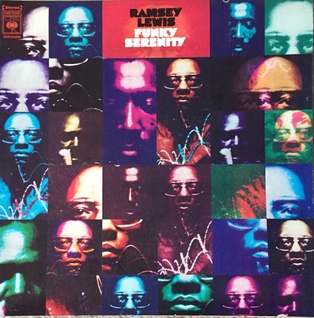
Funky Serenity is an album by the pianist Ramsey Lewis, released in 1973 on Columbia Records. The album got to No. 6 on the Billboard Jazz Albums chart.















